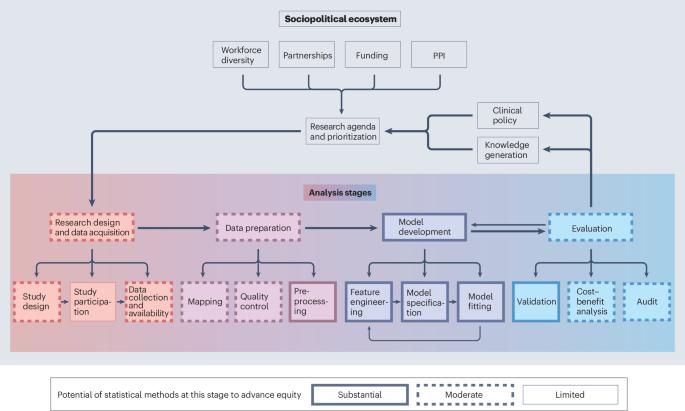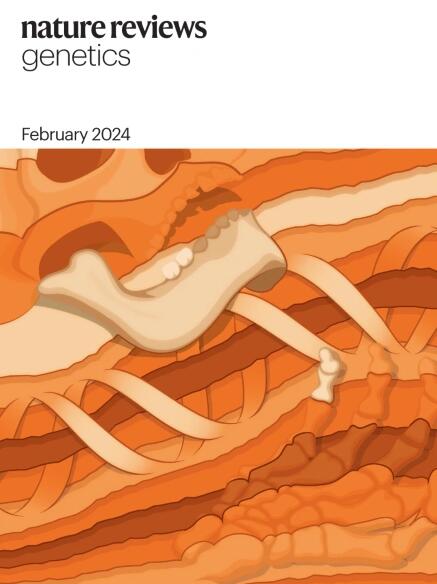基因组数据分析中促进卫生公平的方法学机会
IF 52
1区 生物学
Q1 GENETICS & HEREDITY
引用次数: 0
摘要
基因组研究和医学不公平的原因和后果是复杂和广泛的。然而,人们普遍认为,在人类遗传学研究中,不同人群的代表性不足可能会加剧现有的健康差距。改善多样性的努力正在进行中,但一个经常被忽视的不平等根源是用于处理、分析和解释基因组数据的分析方法的选择。这种选择可以影响基因组研究的所有领域,从全基因组关联研究和多基因评分开发到变异优先排序和功能基因组学。在更广泛的基因组研究和基因组医学生态系统中,正在出现新的统计和机器学习技术,以理解、量化和纠正基因组数据偏差的影响。在这个关键的时间点,重要的是要澄清方法和实践的改进在哪些方面可以或不能在改善基因组学的公平性方面发挥作用。在这里,我们回顾了促进基因组学统计分析公平和公平的现有方法,并提出了可能对公平产生最大影响的未来方法发展。本文章由计算机程序翻译,如有差异,请以英文原文为准。


Methodological opportunities in genomic data analysis to advance health equity
The causes and consequences of inequities in genomic research and medicine are complex and widespread. However, it is widely acknowledged that underrepresentation of diverse populations in human genetics research risks exacerbating existing health disparities. Efforts to improve diversity are ongoing, but an often-overlooked source of inequity is the choice of analytical methods used to process, analyse and interpret genomic data. This choice can influence all areas of genomic research, from genome-wide association studies and polygenic score development to variant prioritization and functional genomics. New statistical and machine learning techniques to understand, quantify and correct for the impact of biases in genomic data are emerging within the wider genomic research and genomic medicine ecosystems. At this crucial time point, it is important to clarify where improvements in methods and practices can, or cannot, have a role in improving equity in genomics. Here, we review existing approaches to promote equity and fairness in statistical analysis for genomics, and propose future methodological developments that are likely to yield the most impact for equity. New statistical and machine learning techniques to understand, quantify and correct for the impact of biases in genomic data are emerging. The authors review how the choice of analytical methods used to process, analyse and interpret genomic data can influence genomic research, as well as existing methodological approaches to promote equity and fairness in genomics.
求助全文
通过发布文献求助,成功后即可免费获取论文全文。
去求助
来源期刊

Nature Reviews Genetics
生物-遗传学
CiteScore
57.40
自引率
0.50%
发文量
113
审稿时长
6-12 weeks
期刊介绍:
At Nature Reviews Genetics, our goal is to be the leading source of reviews and commentaries for the scientific communities we serve. We are dedicated to publishing authoritative articles that are easily accessible to our readers. We believe in enhancing our articles with clear and understandable figures, tables, and other display items. Our aim is to provide an unparalleled service to authors, referees, and readers, and we are committed to maximizing the usefulness and impact of each article we publish.
Within our journal, we publish a range of content including Research Highlights, Comments, Reviews, and Perspectives that are relevant to geneticists and genomicists. With our broad scope, we ensure that the articles we publish reach the widest possible audience.
As part of the Nature Reviews portfolio of journals, we strive to uphold the high standards and reputation associated with this esteemed collection of publications.
 求助内容:
求助内容: 应助结果提醒方式:
应助结果提醒方式:


